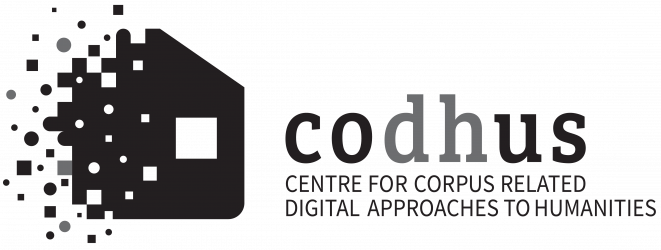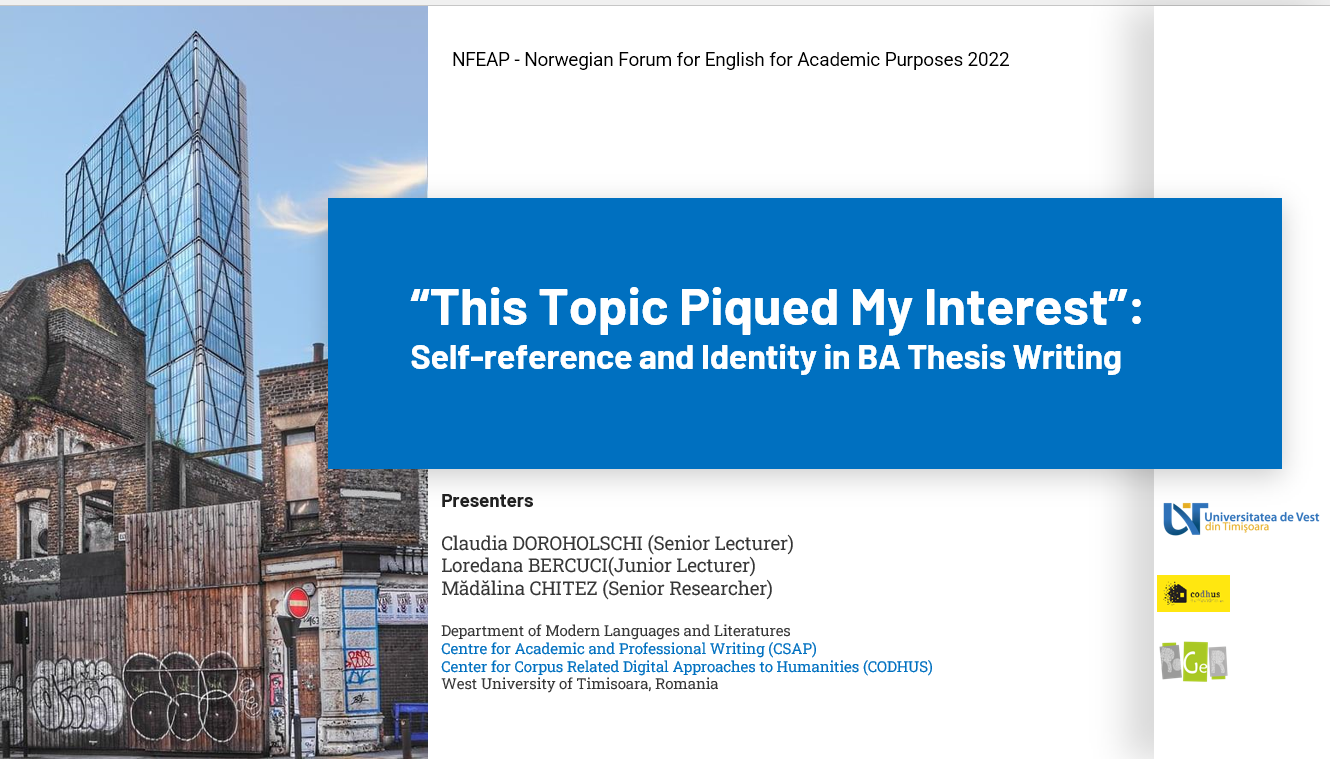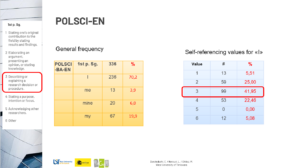9-10 June 2022, paper at the NFEAP 2022 Conference: Beginnings, Oslo Metropolitan University, Oslo, Norway
On 9-10 June 2022, members of the ROGER team participated in the NFEAP 2022 Conference: Beginnings, Oslo Metropolitan University, Oslo, Norway, with the paper entitled “This Topic Piqued My Interest”: Self-reference and Identity in BA Thesis Writing, by Claudia Doroholschi, Loredana Bercuci and Mădălina Chitez.
Abstract:
As Ivanic and Camps (2001) show, “writing always conveys a representation of the self of the writer” (p. 5), and thus always encodes the identity of the author, which connects to, and occasionally comes in conflict with, discoursal identities acceptable in a certain communication situation. Constructing this discoursal self may be challenging to novice academic writers, as they have to negotiate unfamiliar genres and may not be fully aware of what is expected by the particular discourse community they are addressing (Hyland 2002). One aspect that is particularly problematic for learners of English is authorial self-mention, with novice writers having tendency to use the first person more than experienced students (e.g. McCrostie 2008, Çandarlı et al. 2015).
In this paper, we analyse authorial self-presentation in a corpus of 68 Bachelor theses by L1 and L2 students in several disciplines (Philology, Economics, Computer Science, and Political Science). The theses are part of the ROGER bilingual learner corpus that can be accessed freely via a corpus query interface (Chitez et al, 2021). Using corpus specific methods, such as WordList and Collocation extraction, we identify salient self-reference patterns used by the Romanian students in their mother tongue and L2 English. First person personal and possessive pronouns are used as primary linguistic self-referencing prompts for corpus searches and frequency lists. Additional features that contribute to the reinforcement or, contrarily, to the attenuation of authorial voice in writing (e.g. passive voice constructions) are also identified. Next, we discuss the pedagogical implications of our findings and argue for the benefits of explicit teaching of elements related to self-presentation to enable students to control the discoursal identity they are projecting through their writing.
References
Çandarlı, D., Bayyurt, Y., & Martı, L. (2015). Authorial presence in L1 and L2 novice academic writing: Cross-linguistic and cross-cultural perspectives. Journal of English for Academic Purposes, 20, 192–202.
Chitez, M., Bercuci, L., Dincă, A., Rogobete, R., & Csürös, K. (2021). Corpus of Romanian Academic Genres (ROGER). Roger-corpus.org. Retrieved March 10th, 2022,from https://rogercorpus.org/.
McCrostie, J. (2008). Writer visibility in EFL learner academic writing: a corpus-based study. ICAME Journal, 32, 97e114.
Hyland, K. (2002). Authority and invisibility – authorial identity in academic writing. Journal of Pragmatics, 34, 8, 1091-1112.
Ivanic, R., & Camps, D. (2001). I am how I sound. Voice as self-representation in L2 writing. Journal of Second Language Writing, 10, 3-33.
Further information: https://uni.oslomet.no/nfeap/
Presentation slides and conference photos:




